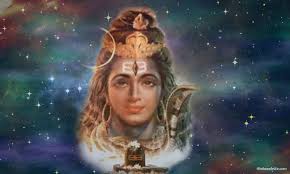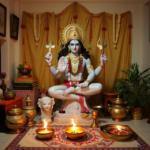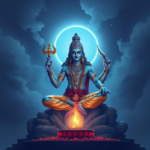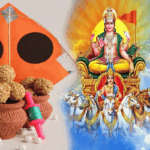Maha Shivratri, one of the most significant festivals in Hinduism, is dedicated to Lord Shiva, the Supreme Being and the destroyer of evil. Celebrated annually on the 14th night of the dark fortnight in the Hindu month of Phalguna (February-March), this auspicious occasion holds immense spiritual significance. Devotees observe fasting, perform night-long vigils, and engage in prayers and rituals to seek the blessings of Lord Shiva. Maha Shivratri is not just a festival but a profound spiritual event that symbolizes overcoming ignorance, embracing divine consciousness, and attaining inner peace.
In this blog, we will explore the significance, rituals, mythology, and spiritual essence of Maha Shivratri, making it an insightful read for devotees and spiritual seekers alike.
The Mythological Significance of Maha Shivratri
Maha Shivratri is associated with several myths and legends in Hindu scriptures. Some of the most prominent ones include:
1. The Divine Marriage of Shiva and Parvati
According to Hindu mythology, Maha Shivratri marks the night when Lord Shiva married Goddess Parvati. After rigorous penance, Parvati won Shiva’s heart, and their union symbolizes the harmony between consciousness (Shiva) and energy (Shakti). This is why many devotees, especially women, observe fasting and worship Shiva in hopes of a blessed married life.
2. The Legend of Neelkanth (The Blue-Throated One)
During the churning of the ocean (Samudra Manthan), a deadly poison called “Halahala” emerged, threatening to destroy the universe. Lord Shiva consumed this poison to protect creation, holding it in his throat, which turned blue, earning him the name Neelkanth. Maha Shivratri is a tribute to this act of selflessness and sacrifice.
3. The Manifestation of Shiva as the Lingam
Another popular belief states that on Maha Shivratri, Lord Shiva revealed himself in the form of a Jyotirlinga (a pillar of divine light) to prove his supremacy over Brahma and Vishnu. This event symbolizes Shiva’s infinite and formless nature.
Spiritual Significance of Maha Shivratri

Maha Shivratri is not just a festival but a profound spiritual experience. It offers an opportunity for deep meditation and self-reflection. The significance of this auspicious night includes:
1. The Conquest of Darkness and Ignorance
Shiva is often regarded as the destroyer of ignorance and illusion. Observing Maha Shivratri is believed to help devotees overcome the darkness of ignorance and attain spiritual enlightenment.
2. Attaining Moksha (Liberation)
Maha Shivratri is considered an ideal time to practice austerities and spiritual discipline. Chanting Om Namah Shivaya, meditating on Lord Shiva, and performing prayers are believed to lead one closer to salvation.
3. The Power of Fasting and Vigil (Jagran)
Fasting on Maha Shivratri is an act of purification that detoxifies the body and mind. Staying awake all night (Jagran) is symbolic of maintaining awareness and seeking divine blessings.
4. The Alignment of Cosmic Energies
According to yogic traditions, on Maha Shivratri, planetary alignments create a natural upsurge of energy. Yogis and spiritual seekers utilize this energy through meditation and prayers to connect with the divine.
How is Maha Shivratri Celebrated?
1. Fasting and Abstinence
Devotees observe a strict fast, refraining from consuming grains and opting for fruits, milk, and water. Some observe Nirjala Vrat (fasting without water) as an extreme form of devotion.
2. Worshiping the Shiva Lingam
Temples are adorned with flowers and devotees offer sacred items to the Shiva Lingam, including:
Milk – Symbolizing purity and nourishment
Honey – Representing sweet devotion
Bel Patra (Bilva Leaves) – Considered sacred and dear to Lord Shiva
Datura and Bael Fruit – Traditional offerings with spiritual significance
3. Chanting Mantras and Bhajans
Reciting Shiva mantras, such as Om Namah Shivaya, and singing devotional hymns help in creating a spiritual atmosphere.
4. Performing Night-long Vigil (Jagran)
Devotees stay awake through the night, engaging in prayers and meditation, symbolizing awareness and self-realization.
5. Rudrabhishekam
A special Vedic ritual called Rudrabhishekam is performed, where sacred hymns from the Rigveda, Yajurveda, and Samaveda are chanted while bathing the Shiva Lingam with holy substances.
The Importance of Maha Shivratri in Modern Life
In today’s fast-paced world, Maha Shivratri offers an opportunity for self-reflection, inner peace, and spiritual growth. Observing this festival can help individuals:
Reduce Stress and Anxiety: Meditation and prayer on this night help in calming the mind.
Improve Discipline and Self-Control: Fasting and night-long vigils enhance self-discipline.
Promote Positivity: Engaging in spiritual practices fosters positive thinking and mindfulness.
Enhance Devotion and Gratitude: Remembering Shiva’s selflessness instills a sense of gratitude and devotion.
Final Thoughts
Maha Shivratri is not just a religious event but a spiritual awakening. It serves as a reminder of Lord Shiva’s greatness and inspires devotees to seek wisdom, self-discipline, and divine consciousness. Whether through fasting, meditation, or chanting prayers, celebrating Maha Shivratri with sincerity can lead to profound inner transformation. As we honor Lord Shiva on this sacred night, let us embrace his qualities of fearlessness, wisdom, and selflessness, striving for spiritual enlightenment and a life filled with devotion and peace.
Har Har Mahadev!
Related posts:
 The Spiritual Significance and Story Behind Jyeshtha Mangal
The Spiritual Significance and Story Behind Jyeshtha Mangal
 How to Perform Maha Shivratri Puja at Home: Step-by-Step Guide
How to Perform Maha Shivratri Puja at Home: Step-by-Step Guide
 Maha Shivratri 2025: Date, Time, and Significance
Maha Shivratri 2025: Date, Time, and Significance
 Hanuman Jayanti 2025: Significance, Celebrations, Rituals, and Spiritual Insights
Hanuman Jayanti 2025: Significance, Celebrations, Rituals, and Spiritual Insights
 Celebrating Hariyali Teej 2023: The Festival of Greenery, Joy, and Togetherness
Celebrating Hariyali Teej 2023: The Festival of Greenery, Joy, and Togetherness
 Makar Sankranti: A Festival of Harvest, Tradition, and Joy
Makar Sankranti: A Festival of Harvest, Tradition, and Joy
